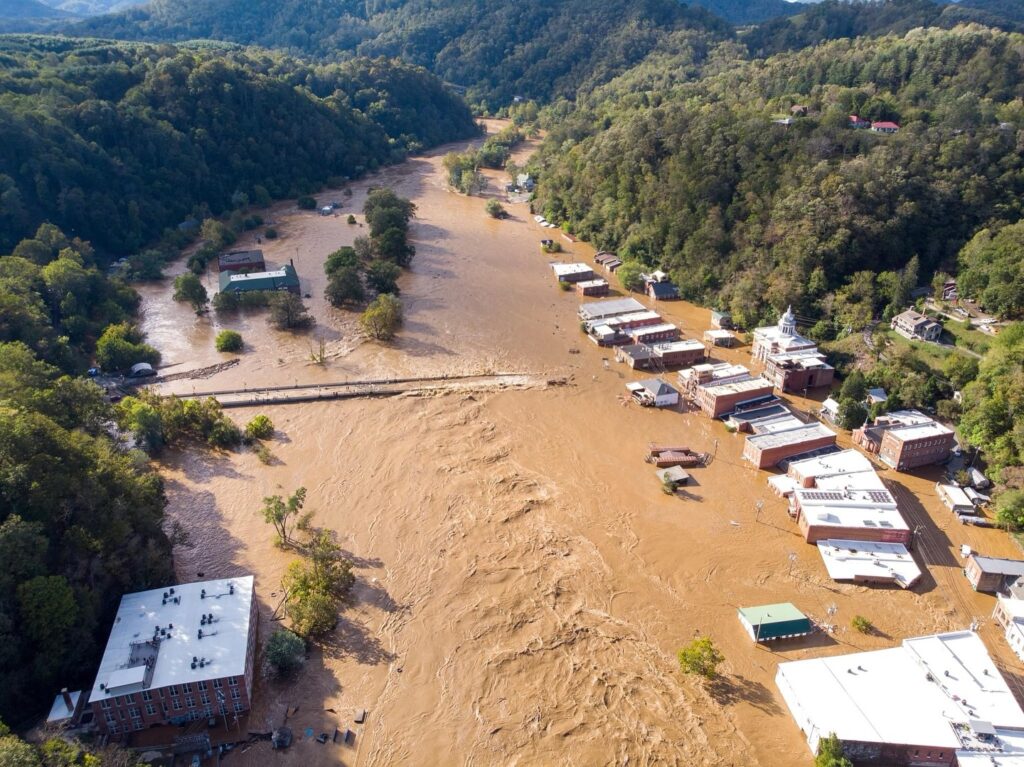In western North Carolina, thousands of people are still without power, many stranded without access to medical help. Amid this chaos, some helicopter pilots have stepped up as first responders, taking it upon themselves to rescue those in dire need. One such pilot is Wilmington resident Zeb Hadley, who has become a lifeline for many.
Hadley’s recent rescues include an 11-day-old premature baby and an 87-year-old woman in desperate need of oxygen. Collaborating with Florida State Guardsman Jonathan Howard and Charlie Keebaugh from the nonprofit Aerial Recovery, Hadley has worked tirelessly to locate and save vulnerable individuals trapped by the flooding.
During one particularly urgent rescue, he recalled, “The team that was deployed was the Florida Guardsman. They had 7 or 8 guys on the ground that went there to meet the baby, got the baby on oxygen, and we were then able to extract the baby. We actually landed on the roof of Mission Hospital in Asheville, which was a pretty cool thing from our end. Obviously, the baby’s safe, the mom’s safe, and that was a good win.”
However, Hadley’s dedication has not come without challenges. Recently, he faced threats of arrest from federal authorities while conducting rescue missions, underscoring the complex and often bureaucratic nature of disaster response. Despite being a civilian volunteer acting in the best interest of the community, the situation highlights the tensions between local efforts and federal regulations, further complicating an already dire crisis.
As Hadley continues his efforts, loading up to deliver gas-powered generators to the western part of the state, his work shines a light on a troubling reality: the federal government is failing at the highest level in responding to such disasters.
Despite the well-documented risks of flooding in this region, many residents found themselves abandoned without essential resources. Emergency response protocols seemed ill-prepared for the scale of this disaster, leaving local heroes like Hadley to fill the gaps. This raises urgent questions about the effectiveness of federal disaster preparedness and response strategies. When civilians must take on roles that should fall to trained federal agencies, it highlights a fundamental failure within our government.
Furthermore, the slow mobilization of federal aid has left communities stranded and in desperate need. Bureaucratic inefficiencies often delay the assistance that victims urgently require, resulting in vulnerable populations—like the elderly and newborns—being left in perilous situations while awaiting official help.
As Hadley and his team work tirelessly to rescue individuals and transport medical personnel, it is essential to recognize the need for a more robust federal framework that prioritizes swift action and comprehensive support during disasters. The dedication shown by civilians underscores a critical gap in our national response to emergencies.
In the wake of such tragedies, we must call for accountability and reform. Our federal government should prioritize investing in disaster preparedness, ensuring that local and state agencies are equipped with the resources and training necessary to respond effectively. When natural disasters strike, we should not rely solely on the bravery of individuals like Zeb Hadley but expect a well-coordinated response that truly safeguards our communities.
Sources:
Wilmington helicopter pilot helps rescue premature baby in western NC
Pilot flying Helene rescue missions in NC ordered out, threatened with arrest
